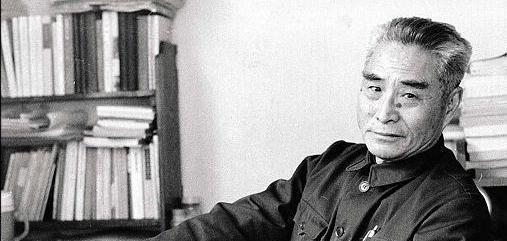He was not rare in Chiang Kai-shek's corps commander, wanted to be a teacher and was reprimanded, defeated and captured and resisted reform
Among the Kuomintang generals, there were few Nationalist generals who did not want to be favored by Chiang Kai-shek and held heavy troops, but Huang Wei was an exception. He was reluctant to be the commander of the Ace Corps during the Civil War, and wanted to be a teacher. However, he was too loyal to refuse to serve as the commander of the corps, but also served as the principal of the military academy.

Huang Wei is a member of Chen Cheng's fierce generals, deeply influenced by Chen Cheng, and his career is smooth. At the age of 34, he served as the commander of the 18th Army, one of the five main forces, which can be described as young and promising. He led his troops to encircle and suppress the Red Army on many occasions, and was a diehard faction that was completely loyal to Chen Cheng and Chiang Kai-shek.
During the War of Resistance Against Japanese Aggression, he led his troops to participate in the Battle of Luodian at the Battle of Songhu, which allowed him to resist the key attacks of the Japanese army for many days and also made him famous. He was also summoned by Chiang Kai-shek to change his name from "Enlightened Me" to "Pei Me", which shows that his position in Chiang Kai-shek's heart is not ordinary.
After the end of the War of Resistance Against Japanese Aggression, Huang Wei was transferred to the commander of the 31st Army, and because he did not want to lead the troops to fight, he wanted to run education and became the deputy commander-in-chief of the joint logistics. After that, he served as the principal of Wuhan to prepare for the establishment of a new military school. This school gave Huang Wei a dream job, and he spent a lot of effort on it. However, the good times were short-lived, because the Nationalist army continued to lose in major battlefields and there were not many generals available, and he was reappointed to the front line to lead troops to fight.
At that time, Chiang Kai-shek expanded the ace 11th Division into the 12th Corps, and prepared to promote Hu Lian, the commander of the reorganized 11th Division, as the commander of the corps, but was opposed by his superior Bai Chongxi, and Chen Cheng promoted Huang Wei, who had been idle for a long time, to the commander of the 12th Corps, and Hu Lian as the deputy commander. Huang Wei did not want to do it, saying that he would only work for three months to transition, and then let Hu Lian be the commander and become the principal himself.
At that time, Hu Lian was originally a strong contender for the commander of the corps, but he did not expect Bai Chongxi to make a fuss and make himself a deputy commander, and then he picked a son and returned to his hometown. Not long after the 12th Corps was besieged by the People's Liberation Army, Hu Lian parachuted into the position and commanded with Huang Wei, which eventually led to the collapse of the 12th Corps. Huang Wei did not wait for 3 months to be captured, and Hu Lian escaped the fate of being captured after being wounded.
After being captured, he went to Huang Wei, and was the most stubborn when he was reformed in the war criminal management center, not only shirking his own guilt, but also refusing to reform his mind. It was not until 26 years later, in 1975, that he was pardoned and returned home. As for whether he was completely reformed in the end, we do not know. One thing is for sure, though, he's not so stubborn anymore.